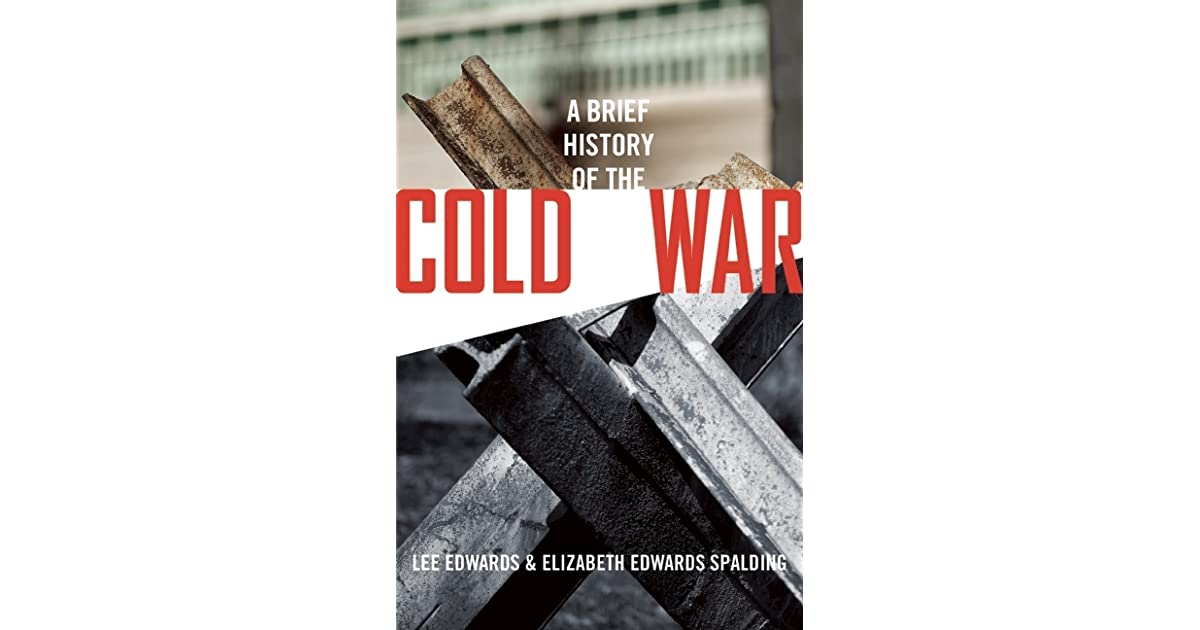Physical Address
304 North Cardinal St.
Dorchester Center, MA 02124
Physical Address
304 North Cardinal St.
Dorchester Center, MA 02124

The Best and Latest in Conservative Thought

Intrigue, espionage and an arms race brought the world to the brink of nuclear war. But it was avoided. Find out why and how in our selection of excellent books on the Cold War.
We’ve included several macro overviews, as well as books highlighting the more personal side, from the specific efforts of President Ronald Reagan to the spies and spycraft that came to typify the Cold War itself.
A Brief History of the Cold War

One of the greatest battles of the modern area wasn’t fought on the battlefield but using spies, politics and economics. The Cold War split the world in half between those who supported the totalitarianism of the Soviet Union and the principles of freedom and a free market espoused by the United States.
America emerged from World War II as a massive military and economic power, but it was the actions in the decades that followed that transformed it into a global superpower.
The Cold War shaped US strategy, and its policies both at home and abroad.
In this high level overview, authors Lee Edwards and Elizabeth Edwards Spalding detail the critical moments, people and strategies that led, ultimately, to the collapse of the Soviet Union. It also makes the case for America’s critical role on the world stage.
The Cold War: A World History

A unique new look at the Cold War, scholar Odd Arne Westad gives a perspective like none other.
Looking deeper into history and broader geographically, Westad details the roots of this global stalemate dating back to the industrial revolution, while simultaneously expanding its ramifications into Asia, Africa and the Middle East.
This critical time in world history was more than a clash between two superpowers, and the shockwaves it created impacted almost every corner of the globe, then, today and for decades to come..
A Patriot’s History of the Modern World, Vol. II: From the Cold War to the Age of Entitlement, 1945-2012

The Cold War and more, “A Patriot’s History of the Modern World, Vol. II” takes you from the end of World War II until present day.
This book details the rise and fall of the Soviet Union, and the emergence of two new threats to America: China and Islam.
Historians Schweikart and Dougherty recount it all in the context of American exceptionalism rooted in a Judeau-Christian tradition, common law and free market capitalism.
Reagan’s War: The Epic Story of His Forty Year Struggle and Final Triumph Over Communism

A personal look at President Ronald Reagan’s war on Communism, historian Peter Schweizer delves into the archives to weave a fascinating tale.
While some accused Reagan of merely being a passenger in the West’s battle against the Soviet Union, this book tells a very different story. Schweizer details Reagan’s fundamental conflict with Communism and how he carefully mapped out many of the key actions and decisions of the cold war.
Using previously unreleased data from US archives, as well as those from Germany, Poland, Hungary and Russia (yes, even Reagan’s KGB file) you’ll learn how Reagan often disagreed with his advisors and charted his own path in order to defeat the Soviet Union.
This book will give you a new perspective on the Cold War.
Stalin’s Englishman: Guy Burgess, the Cold War, and the Cambridge Spy Ring

Shockingly, this book is a work of non-fiction.
In it, Andrew Lownie tells the incredible tale of “The Cambridge Spies,” specifically the traitor Guy Burgess.
Burgess and three others were recruited by the Soviet Union to spy on the West in the years following World War II. He rose through academia, worked in the BBC, the Foreign Office and eventually both MI5 and MI6, gaining access to top secret files and sharing them with his Soviet handlers.
Despite being a drunk and a womanizer, Burgess used his charm and connections to avoid suspicion and build close personal relationships inside the British establishment, including with Winston Churchill.
An incredibly detailed work, it includes details from over 100 interviews with those who knew Burgess best.
The Man with the Poison Gun: A Cold War Spy Story

The Cold War was known for its spies and espionage, and there’s no better way to get a real world account of exactly what that was like than by reading Serhii Plokhy’s The Man With the Poison Gun.
This book tells the incredible story of KGB assassin Bogdan Stashinsky, who in 1961 defected to West Germany, spilled his secrets to the CIA and famously went on trial for the assassination of Ukrainian nationalist leaders Lev Rebet and Stepan Bandera.
The case brought to light how the KGB operated and forced it to alter course. It reads like a true spy novel with double agents exploding packages and stages cover-ups and is the inspiration for Sir Ian Fleming’s final James Bond novel, The Man With the Golden Gun.